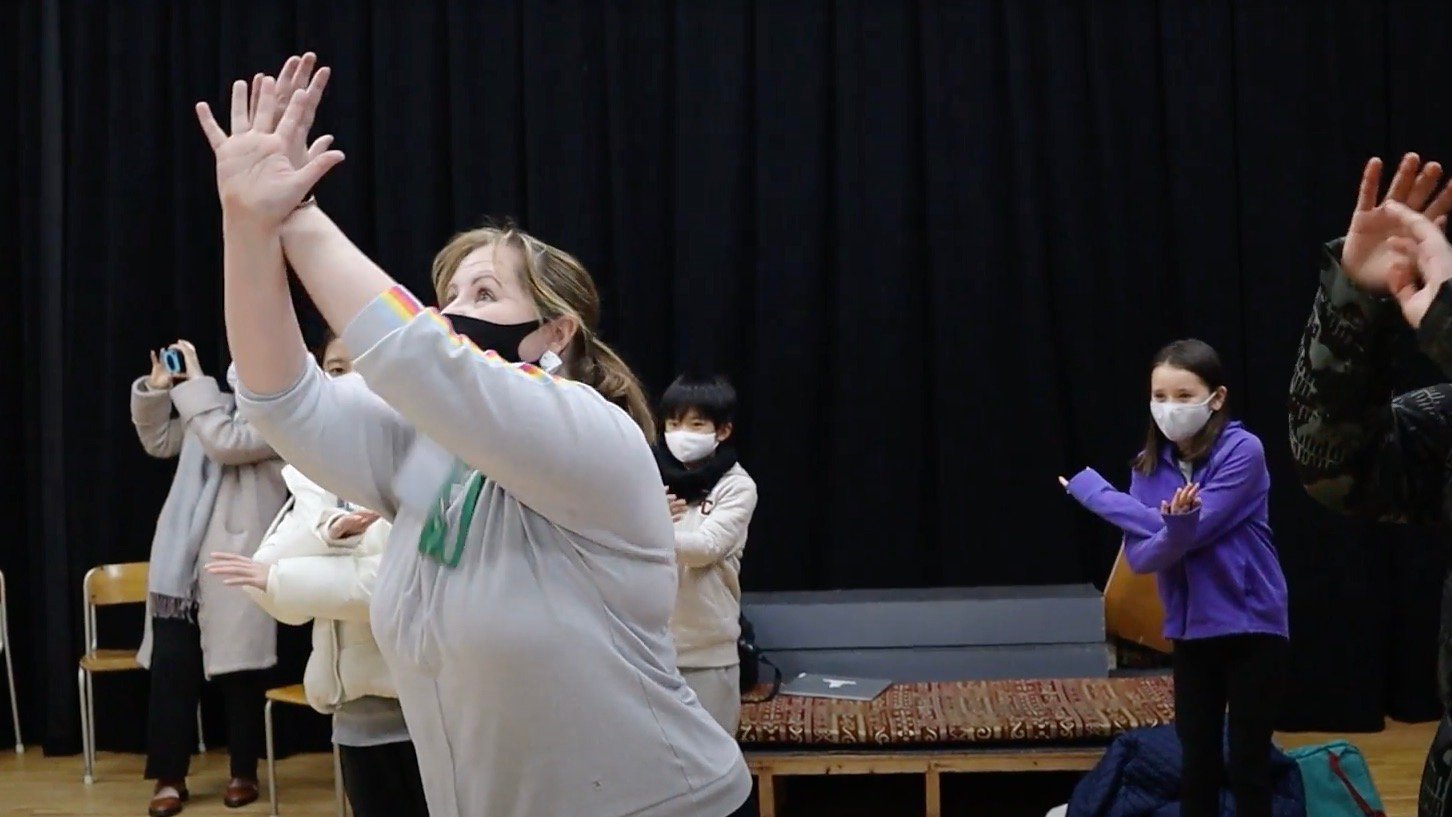
Brazilian Theatre practitioner Augusto Boal once said, "We must all do theatre, to find out who we are, and to discover who we could become." As the MYP Drama and DP Theatre teacher at NIS, I couldn't agree more
with Mr. Boal! Theatre opens our minds, not only to the discovery of oneself but also to a multitude of possibilities for our futures. Students who take part in Drama lessons at NIS understand that Theatre is much more than simply learning how to act. We explore emotions, situations, stories, cultures, technology, and techniques. We get to play with plays and develop skills essential to our everyday lives as we grow.
I remember once being in a parent/teacher conference in the UK, and the parent I was talking to asked me quite bluntly: "but what is the point of these soft subjects like Drama? I don't see how it is important that my son learns how to act if he has no interest in becoming an actor." Honestly, this was not the first time I had been asked this question, and I know it won't be the last. However, I am always ready to answer. As I explained to this parent and as I always explain to new drama classes - I am not here to just teach students acting skills. Drama is so much more than this.
- Drama is about building confidence and activating the imagination.
- Drama is helping young people feel ready to speak in front of a group of people, whether that is on stage in a play, in front of a science class for a presentation, on their research into genetics, or even in front of an interview panel when they start applying for their first job after graduation.
- Drama is about developing leadership skills when learning how to direct a scene and then transferring those skills for when they become managers of a company.
- Drama is learning to collaborate and exploring how to work successfully as a team to create a unique performance or complete a group history assignment.
- Drama is about vision and looking at the big picture.
- Drama helps students develop empathy and sympathy with characters whose lives are very different but relatable.
- Drama gives us an insight into different cultures, worlds, and experiences.
- Drama allows students to explore issues and themes that young people like themselves face in the world in a safe and controlled environment.
- Drama is comedy and tragedy.
- Drama is set design, costume, lighting, and sound.
- Drama is Stanislavski, Brecht, Boal, Mitchell, Bogart, Artaud, Lepage, Suzuki.
- Drama is Pinter, Williams, Berkoff, Miller, Shakespeare, Kane, Churchill, Stephens, Cooke.
- Drama is Spielberg, Tarantino, Hitchcock, Scorsese, Coppola, Bong Joon-Ho, Hardwick.
- Drama is in every aspect of our lives - we watch television, go to the movie theatre, listen to radio plays and podcasts, and play video games. These forms of entertainment require actors, directors, designers, and technicians to bring these marvelous worlds to a varied audience.
None of the above happens by magic. It all starts in the Drama classroom and moves beyond. Your child doesn't need to grow up to become an actor, but if they do, that would be very cool too! Drama opens up a world of possible career ideas from the stories we explore as well as helping students develop the life skills to succeed in those careers, whether it be a doctor, an engineer, a geneticist, an architect or a pilot.
My absolute favorite thing about being a drama teacher is seeing a student grow in confidence throughout the course of a year or even five. To watch a student grow as a person who can begin to experiment and explore with ideas and techniques until they stand up and confidently present or perform in front of their classmates, with a look of accomplishment and pride is - in a word - AWESOME. Therefore going back to what that one parent (and many others since) mentioned about Drama being classified,d as a "soft" subject, I think it is clear we can see there is nothing soft about the world of Drama and Theatre. It is hard, it is difficult, it is challenging, it is exciting, it is creative, and above all, it is fun and pretty incredible.

